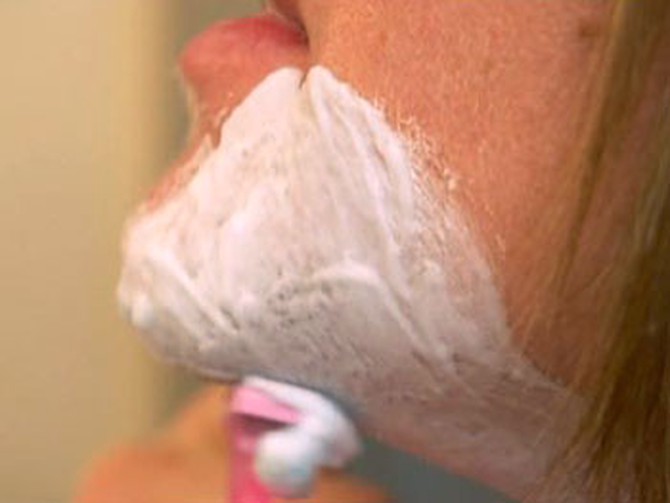Appointments with Dr. Oz
By Dr. Mehmet Oz
From plucking to bleaching to shaving, audience member Jaymi says she's tried almost everything to get rid of her facial hair. "It takes me like two hours to get ready every day just to deal with that," she says. Jaymi is so embarrassed about her problem, she won't even let her husband in the bathroom in the morning.
Dr. Oz says this is a very common issue for women. "Fifty percent of women in America aren't happy with the amount of body hair they have, including on their face," he says. "The things you're doing, by the way, are perfectly fine. But we also want to find out why it's happening."
Jaymi's periods are regular, so Dr. Oz says she probably isn't suffering from polycystic ovarian disease, which affects 5–10 percent of American women. Polycystic ovarian disease, which is very treatable, is caused by hormones, and extra testosterone can cause facial hair.
Dr. Oz says it still couldn't hurt for Jaymi to get her hormones checked. Birth control pills might make a difference, he says. "Certainly these pills can be effective in regulating testosterone, and some of these pills are pretty effective at reducing the hair from coming back," he says.
In the meantime, Dr. Oz says Jaymi can investigate a few more cosmetic options, like waxing or laser removal. He also wants to set the record straight on shaving—it won't cause more hair to grow back. "The hair follicle is a hair follicle," he says. "What happens is it comes back a little bit harder." Dr. Oz also recommends shaving instead of plucking to avoid pimples.
Dr. Oz says that by sharing her story, Jaymi may have helped a lot of people. "Thank you for asking the question that a lot of people are wondering about," Dr. Oz says. "Thanks for being brave. That's what it's all about."
Dr. Oz says this is a very common issue for women. "Fifty percent of women in America aren't happy with the amount of body hair they have, including on their face," he says. "The things you're doing, by the way, are perfectly fine. But we also want to find out why it's happening."
Jaymi's periods are regular, so Dr. Oz says she probably isn't suffering from polycystic ovarian disease, which affects 5–10 percent of American women. Polycystic ovarian disease, which is very treatable, is caused by hormones, and extra testosterone can cause facial hair.
Dr. Oz says it still couldn't hurt for Jaymi to get her hormones checked. Birth control pills might make a difference, he says. "Certainly these pills can be effective in regulating testosterone, and some of these pills are pretty effective at reducing the hair from coming back," he says.
In the meantime, Dr. Oz says Jaymi can investigate a few more cosmetic options, like waxing or laser removal. He also wants to set the record straight on shaving—it won't cause more hair to grow back. "The hair follicle is a hair follicle," he says. "What happens is it comes back a little bit harder." Dr. Oz also recommends shaving instead of plucking to avoid pimples.
Dr. Oz says that by sharing her story, Jaymi may have helped a lot of people. "Thank you for asking the question that a lot of people are wondering about," Dr. Oz says. "Thanks for being brave. That's what it's all about."
Published 03/14/2008


